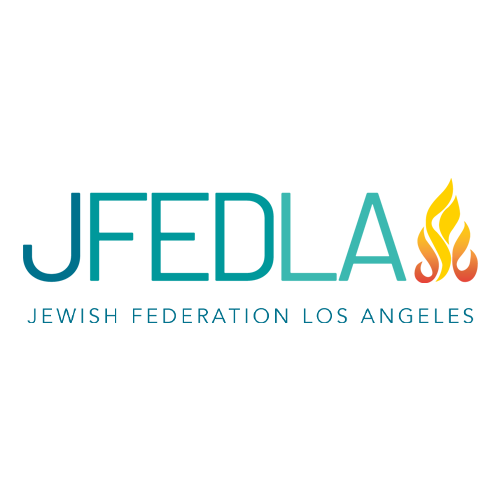About the Joint Council of Mechinot
The Joint Council is the representative organization of all 61 one-year mechinot, including 23 Orthodox mechinot and 38 mechinot that serve young people who are traditional, secular, mixed, or members of a distinct group. As of 2024, some 4,500 young people are being educated at mechinot of various stripes.
A common goal
All mechinot share the goal of giving students an ethical and Zionist education that inculcates the values of social leadership, initiative, and volunteerism in the IDF and in civilian life. United around this goal, the heads of the mechinot work to continually expand and improve the mechina world on the basis of collaborative thinking and joint learning, despite the profound differences between them and the various mechinot.
The Joint Council coordinates shared educational projects and new initiatives, and raises resources to serve the common objectives of all mechinot.
The Joint Council operates projects for the mainstreaming at the mechinot of special population groups, including individuals with disabilities, individuals from outside Israel, and individuals from Israel’s social and geographic periphery; conducts periodic training events for all levels of mechina staff (mechina heads, counselors, alumni coordinators, and others), as well as annual conferences and seminars; and operates projects in areas relevant to all mechinot, such as scholarships, navigation and field activities education modules, other educational content , alumni operations advancement and development, and research and evaluation.
Decisions about the character of Joint Council programs and activities are made collaboratively by the heads of the mechinot through their elected representatives who serve on board of the Joint Council, following in-depth discussions of the mechina world’s present and future educational and professional considerations.
The Joint Council also leads joint seminars, conferences, and other educational programs and activities for all mechinot. An integral part of the Joint Council’s work is coordinating national projects, such as when the students of the mechinot joined the fight against COVID by becoming Magen David Adom testers in locations throughout Israel early in the pandemic.
Background and establishment
The Joint Council of Mechinot was established in 2008, the culmination of many years in which collaboration among mechinot grew ever closer despite the absence of a coordinating organization. The need for a council giving formal expression to this cooperation became greater in 2008. During the summer of that year, the Knesset passed the Pre-Military Leadership Academies Act by a large majority and without a single opposing vote, calling for the establishment of mechanisms for the accreditation, expansion, and continued success of the mechinot.
Following the passage of the law, all of the mechinot accredited by the Ministry of Education and the Ministry of Defense decided to give formal expression to their common work by forming an umbrella organization: the Joint Council of Mechinot.
The initial mechinot were founded in the late 1980s and early 1990s. The first Orthodox mechina was established in 1989, and numerous additional mechinot for graduates of Orthodox high schools followed.
The first of the traditional and secular mechinot were founded in 1997 with the close assistance of the Orthodox mechinot, and these new institutions quickly blossomed as well.
A unique organization
The Joint Council stands out as virtually the only voluntary group in Israel in which people of all stripes—religious and secular, right and left, and so on—work together in the service of a national goal on the basis of friendship, trust, and mutuality, despite considerable differences between the worldviews of the leaders at the helms of the various mechinot. Membership in the Joint Council is not mandated by law, but a choice made by each individual mechina. The fact that all of the mechinot choose to be members of the Joint Council attests to the strong shared foundation that is the secret behind the growing success of their educational work. For this reason, there always are two officers leading the Joint Council, one representing the secular mechinot and another representing the Orthodox mechinot, and all decisions are made through open dialogue between secular and religious individuals. In this way, the mechinot and the Joint Council maintain an atmosphere of trust and friendship that has proven stronger than the historic trials that have tested both them and all of Israeli society since the mechinot were created.
Our key projects
The Joint Council operates a number of programs that seek to enrich mechina students, further diversify the mechina student population, and impart Zionist Israeli values.
Shibolim
Shibolim targets young people with disabilities who wish to take part in the mechina experience. The goal of the program is to ensure that young people with disabilities have equal opportunity to attend mechina as preparation for meaningful service in the IDF, with welcome consequences for their future as an integral and integrated part of Israeli society. Click to read more.
Yachad
Yachad is a Masa program for the integration in Israeli mechinot of young Jews from around the world during their gap year. The goals of the program are to have non-Israeli Jews as part of the mechinot and to deepen the connection between Israeli teenagers and their counterparts in the Diaspora. For further information, see the program website.
Be’Artzeinu
Be’Artzeinu is the movement for the self-actualization of mechina alumni. The association was established in 2016 to develop avenues for alumni to put the values of the mechinot into practice in important national and social missions, national and local civil service, the security forces, development of the Negev and Galilee, creation of intentional communities, volunteering at a large scale to achieve civic ends, and education.
In recent years, Be’Artzeinu has operated a network of student villages, with some 250 mechina alumni participating in about nine locations every year; has operated Amali Forum programs for recently discharged soldiers, featuring government-incentivized agricultural work, group living, and study; and has advised groups of young Israelis settling down together in communities and neighborhoods within the country’s periphery. For more information, see the Be’Artzeinu website ( ).
Education enrichment and scholarship programs
- On the Horizon, a one-year educational program featuring Zionist history, pioneering, and community to prepare young people to settle Israel’s periphery
- Navigation and field activities education modules, a collaboration with KKL Green Horizons
- Judaism, Zionism, and Jewish Peoplehood, a set of programs that bring more depth and diversity to the study of Judaism at the mechinot and to students’ connection to Diaspora Jewry and young Jews outside Israel
- Meeting in One Land, a program that fosters direct interaction and acquaintance between Arabs and Jews
- The Lishmah Gender Equality and Empowerment Studies Program
- Judaism and Democracy, a program that promotes commitment to Israel as a Jewish and democratic state
- A tuition assistance fund for economically disadvantaged students
- Leadership for Professionalism and Safety, a mentoring program that supports the assimilation of learning processes and professionalism to ensure safety in mechina activities
Reducing social inequality
Every year, young people from a wide range of backgrounds attend the mechinot.
In the 2021–2022 mechina year, according to Joint Council figures:
- A total of 33 percent of mechina students were from the periphery or special populations
- Some 50 young people with disabilities attend mechina every year with mentoring and assistance from Shibolim, the program for mainstreaming young people with disabilities at the mechinot
- Over 150 young Jews from outside Israel, or about 5 percent of students, attend mechina every year through the Joint Council’s Yachad program
Major achievements
- Successful lobbying for the Pre-Military Leadership Academies Act of 2008, which assured funding for the mechinot from the Ministry of Defense and the Ministry of Education.
- Free mass transit for mechina students, as of a 2015 regulation that gave mechina students rights equal to those of service year program participants.
- Facilitation of uncommonly close cooperation between Israelis from left and right, religious and secular backgrounds, and all sectors of society, who are brought together by the mechinot and the Joint Council.
- A 200 percent increase in projects of national scale spearheaded by the mechinot in the past two years, with participation of approximately 4,000 students.
- Enhancement of diversity at the mechinot through a cooperative effort that has successfully recruited Ethiopian Israelis and young people with disabilities as students.
Service with meaning
According to IDF Human Resources Directorate figures from 2022:
- Some 21 percent of men who graduated from non-Orthodox mechinot and 18 percent of men who graduated from Orthodox mechinot start an officer course, as opposed to 11 percent in the general population.
- Twenty-two percent of women who completed mechina start an officer course, as opposed to 10 percent in the general population.
- Mechina alumni in the IDF are less likely to drop out or commit military offenses than the general population.
These figures are supported by similar numbers from a survey of mechina alumni performed by the Joint Council together with the Bloomberg Foundation in 2017.
Between 40 and 60 percent of the members who graduate in every IDF flight school class are mechina alumni, as are between 19 and 25 percent of those who complete every naval officer training class. Mechina graduates account for some 10 percent of IDF soldiers honored every year by the president, and are well represented in the ranks of soldiers honored by their units as well.
Prizes and public recognition
- 2010: The mechina enterprise was awarded the Yigal Allon Prize for Outstanding Pioneering Work.
- 2016: Rabbi Eli Sadan, founder and head of the Bnei David Mechina in Eli, was awarded the Israel Prize for his instrumental part in establishing the mechina enterprise.
- 2020: The Joint Council of Mechinot was awarded the Jerusalem Unity Prize.
- 2022: The CEO of Mechinat Kerem-El was honored with lighting a torch on Mount Herzl.
We invite you to join the growing group of students, alumni, families, friends, and supporters of the mechinot—the Zionist educational project that is leading the most dramatic and captivating social revolution in contemporary Israel society.
Contact us
The Joint Council of Mechinot
HaMidrasha at Oranim
Oranim Academic College
Kiryat Tivon 36006
























Follow Us on Social Media